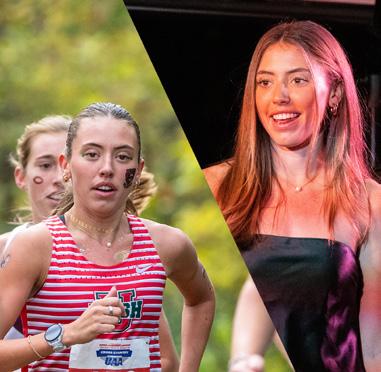
BEST OF BOTH WORLDS:
Lucinda Laughlin stars in cross-country and a cappella. (Sports, pg 4)
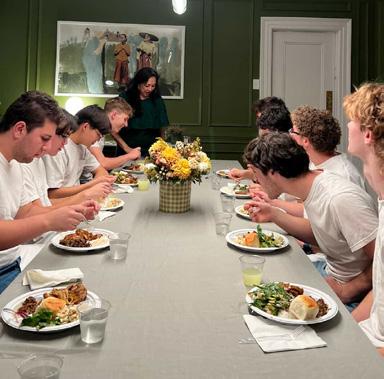


BEST OF BOTH WORLDS:
Lucinda Laughlin stars in cross-country and a cappella. (Sports, pg 4)

WHERE THERE’S A WILL, THERE’S A WAY: Tracking down the 19 first-year Wills. (Scene, pg 6)

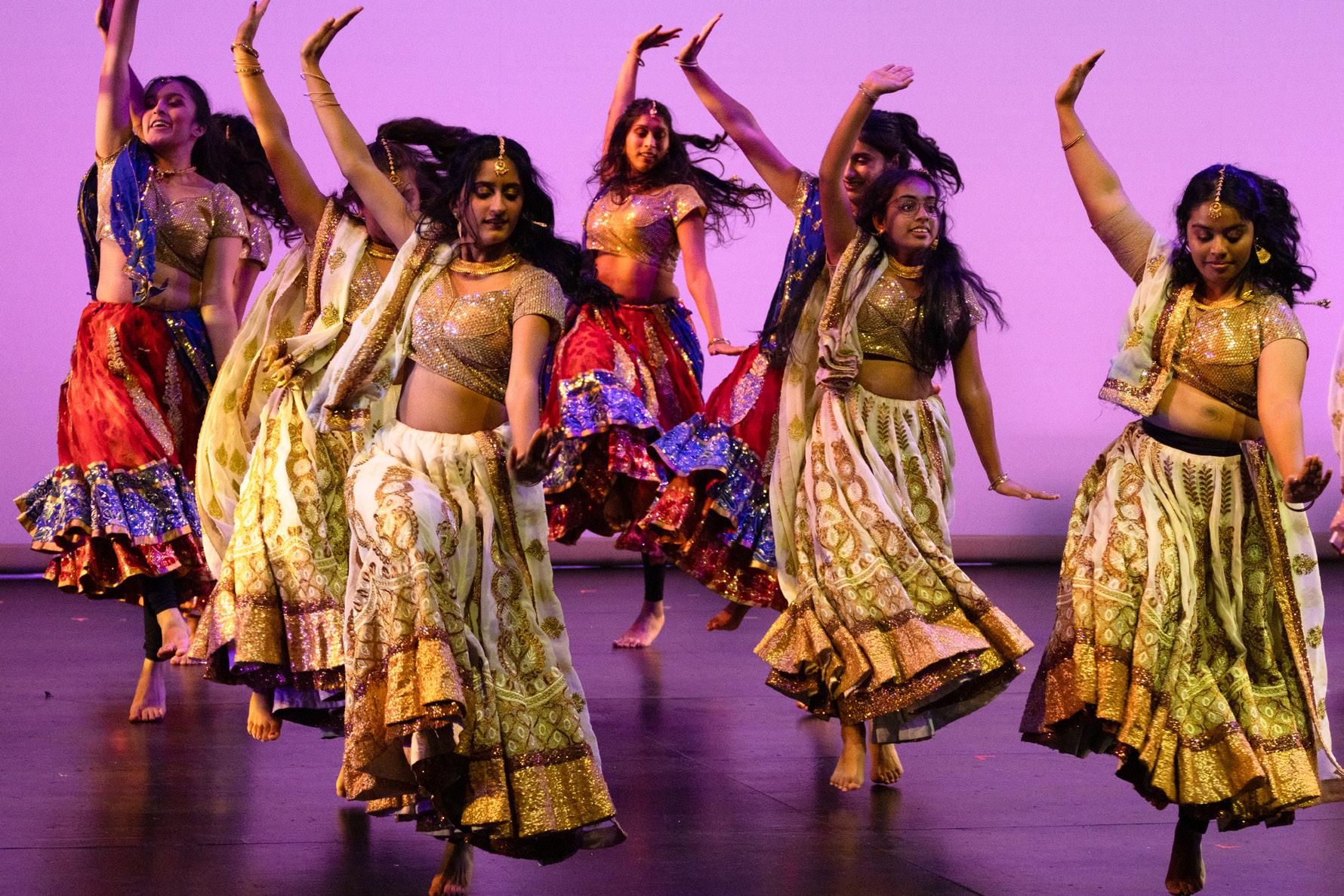
planning by Ashoka’s executive board and tireless effort from each of the groups performing.
This past weekend, Ashoka, WashU’s South Asian student association, put on their annual Diwali showcase. The event features and unites different cultures across South Asia for Diwali, a widely-observed holiday celebrating light. Glittery outfits, colorful lights, and music filled Edison Theatre after months of
“We start planning in the summer, so we have our first initial meeting with Edison before the semester ends in April,” senior Ankitha Vontela, one of the Ashoka co-presidents, said.
“It’s a lot of long hours, a lot of long nights,” senior Shruthi Madhugiri, the other Ashoka co-president, said.
The 172 performers included
competitive and classical dancers, classical musicians, a cappella singers, a fashion show, and more. This year’s theme, Dhamaka, encapsulated the spirit of the event.
“‘Dhamaka’ kind of means explosion or blast,” Vontela said, explaining that the group wants to be “loud and proud about who we are [and] our presence on campus.”
SEE DIWALI SHOWCASE, PAGE 5
SENIOR REFLECTION:
We’re not ready to stop learning.
(Forum, pg 7)
COBY RINKE NINA LASER NEWS EDITORS
In September of this year, WashU’s Olin Business School created new grading guidelines, recommending that professors assign letter grades so that they average out to an equivalent of 3.3 or 3.4 GPA in required classes and 3.5 or 3.6 in elective classes, Vice Dean of Education Todd Gormley told Student Life via email.
Olin’s new guidelines were created in part to combat a decades-long trend of increasing GPAs at WashU. While WashU does not publish data on grades, Student Life compiled some data from annual WashU Greek Life academic reports. These reports list University-wide average GPA as a comparison point for the GPAs of students in specific fraternities and sororities.
The University-wide average GPA rose from 3.37 in fall 2004 to 3.57 in fall 2019. It increased rapidly during the COVID-19 pandemic — by spring 2021, it reached 3.73.
Since then, it has decreased slightly, to 3.69 in fall 2024 and 3.68 in spring 2025, according to Greek Life reports. If professors
in Olin choose to follow the new suggested guidelines, it could result in a significant drop in student GPAs.
Rising grades are not new; average grades at universities nationwide have been increasing since the 1960s. Debates over the causes of this grade increase, whether it constitutes a problem, and what to do about it, have existed for decades at WashU.
However, as elite universities face increasing national scrutiny, grade increases at these schools have increasingly drawn attention. In late October, a Harvard University report found that most students at the school receive A grades despite low class attendance — sparking debate in major news outlets like The Atlantic, The New York Times, and The Chronicle of Higher Education. Additionally, the Trump administration’s recently proposed Compact for Higher Education — which WashU declined to sign — stipulated that schools must not inflate or deflate grades and must publicly display relevant data on grades, among other provisions.
SEE GRADE INFLATION, PAGE 2
Over the past year, WashU has faced the possibility of significant cuts in National Institutes of Health (NIH) funding.
Anticipation of these cuts has been cited as a significant factor in major University decisions like the pause in construction of the new Arts & Sciences building and, more recently, a series of staff layoffs. WashU School of Medicine, which currently receives the second-most amount of funding from the NIH of all medical schools nationwide, has also faced a series of threats to its funding.
These cuts have created a great deal of anxiety within the research community at WashU, according to Ram Dixit, Chair of Biology, and Jeff Zacks, Chair of Psychological & Brain Sciences.
However, the cuts have not been as sweeping as initially predicted.
“If we look at the total dollar
amount, it’s not a catastrophic hit,” Dixit said. “But if you look at the timing and the dollar amounts of individual grants, they range from total cuts to massive budget cuts and things being slowed.”
While the total value of the grants has remained relatively steady, the delays and uncertainty surrounding them have the potential to greatly hinder “the development of the next generation of the scientific workforce and scientific leaders,” Dixit said.
Biomedical research is a cornerstone of the medical school’s curriculum — approximately 95% of students engage in some form of biomedical research. However, Dixit said labs have already begun cutting back on research positions.
“We have faculty who normally would have accepted a certain number of graduate students pulling back on the number of students that they are comfortable accepting because they want
to make sure that they can continue to support current graduate students, postdocs, and other staff members,” he said.
These cuts not only put the futures of postdoc and graduate students in question, but also have the potential to affect undergraduates’ ability to engage in research on the medical campus.
“The number of undergraduates who can have meaningful experiences in the lab is totally tied to the number of graduate students and postdoctoral fellows and research staff [we have],” Dixit said. “Our faculty is great and they devote a lot of time to supervising their undergraduate students in the lab, but they’ve got [a] finite number of hours.”
This is particularly threatening news for STEM students, for whom research is often a key extracurricular for medical and graduate school applications.
According to the Department of Biology’s website, more than 75% of biology majors complete research before they graduate.
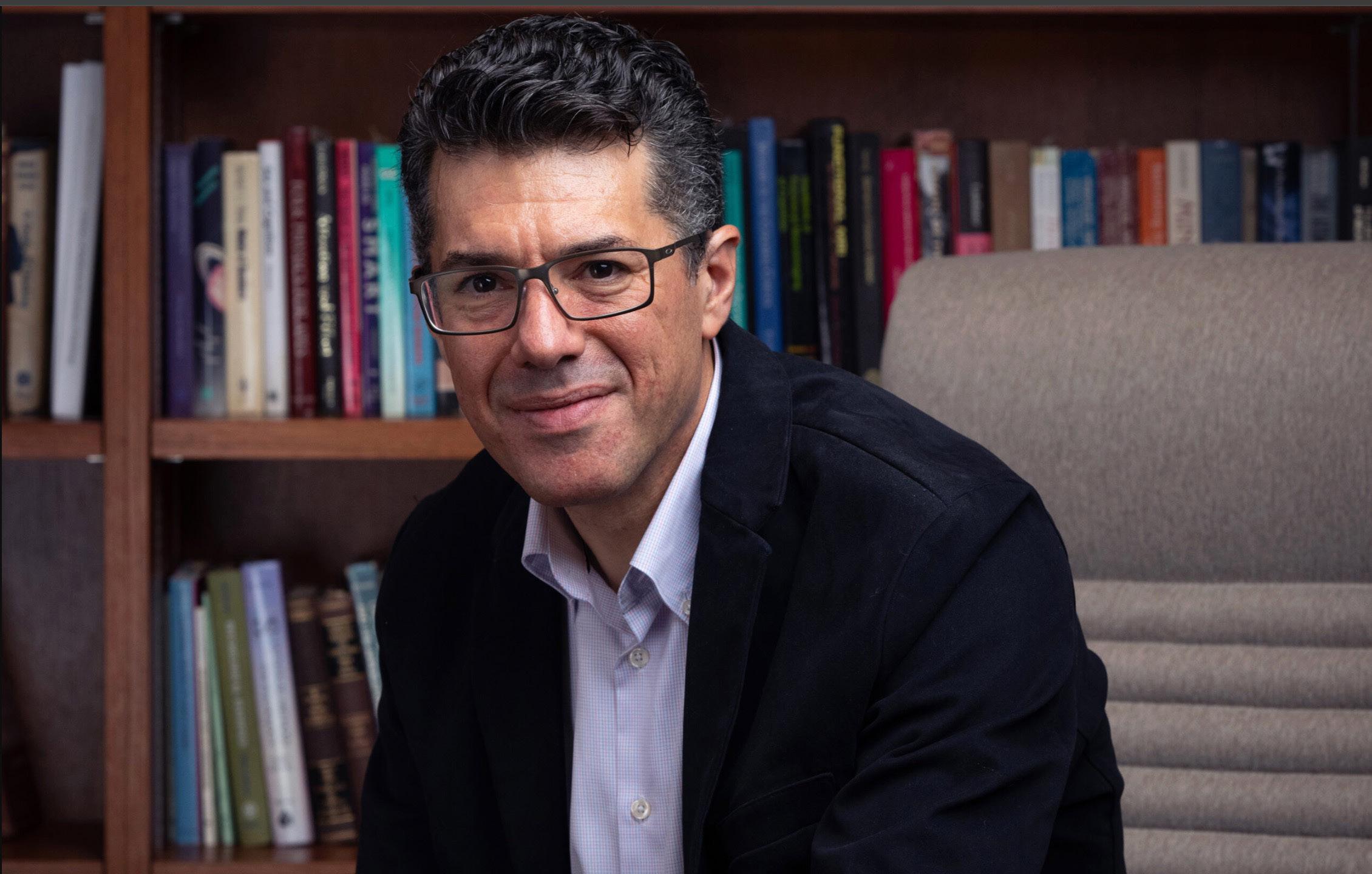
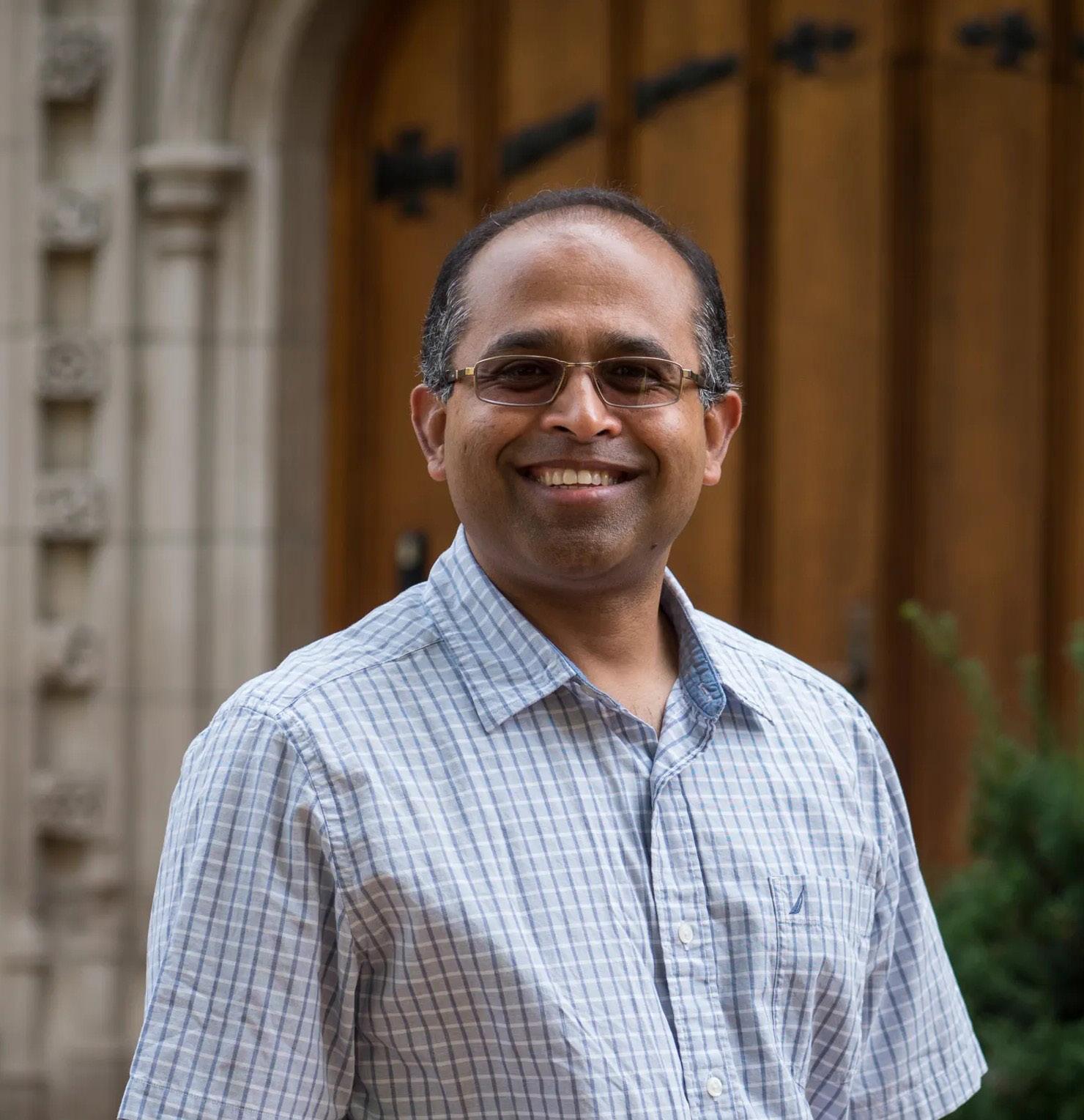
The recent government shutdown has further complicated the situation, according to Zacks. Research grants like those issued by the NIH must pass through a review panel made up of scientific experts. Because of the shutdown, these panels have not met since Oct. 1, meaning new grants could not be approved and existing grants have not been refunded. As a result, researchers’ salaries have been slashed dramatically.
If research staff cannot make a living from their work, they may be forced to seek other job opportunities.
“Those people are gonna have to go get other jobs,” Zacks said. “They’re gonna lose contact with their human participants in their studies. So it potentially sets things back by much more [than just funding].”
Zacks added that research staff are often handpicked for research projects and assembled over long
periods of time, so disruptions to that process not only affect the course of the research, but also the careers of the researchers. These researchers may then have to leave research or academia for more stable opportunities.
“The tragedy for the nation is that [if] we lose those people, [those young researchers,] they ain’t coming back,” Zacks said. In addition to their warnings about the impacts of these cuts, Dixit and Zacks also stressed the importance of advocacy and community in their fight for stability.
“It’s now abundantly clear that those of us who care about the mission of Washington University, those who care about the success of research and the increase of human knowledge have to tell our friends, neighbors, and our elected officials that this matters to us and talk about why it’s important,” Zacks said.
from page 1
When average grades rise without a proportional improvement in academic performance, this trend is called grade inflation.
Proponents of the grade inflation explanation argue that academic rigor is declining, and therefore that increasing averages are not merited. Critics argue that the increase can instead be attributed to better teaching and hard working students.
WashU’s Vice Provost for Educational Initiatives
Jennifer Smith believes grades no longer accurately reflect students’ mastery of a subject.
“I’m simultaneously hearing from faculty concerns that student knowledge or skills are not what they should be or were, and yet grades are higher than they’ve ever been,” Smith said. “People are saying, ‘I’m covering less material, simplifying exams,’ things like that.”
Within the standard A-F letter-grade system, a C is the midpoint. However, several professors at WashU told Student Life that they do not award this grade to their average student because they believe it could cause disproportionate amounts of stress.
every student to be able to keep trying to do better,”
Gardner said.
Brett Green, a professor of finance, oversaw the creation of Olin’s new grade

detracts from this purpose.
“If everybody’s getting very high grades, it becomes hard to distinguish talent or learn [anything] meaningful from them, then employers are going to rely on other sources of information to figure out who they want to hire,” Green said.
Smith thinks aligning grades with the amount of material learned is more important than ensuring grades differ between students.
“Have you mastered this material? Can you use it?
That’s all I need to know,” Smith said. “I don’t need to
system found that some faculty members consider course evaluation ratings when assigning grades. An anonymous faculty member quoted in the article said that they “[hesitate] to give grades lower than A-/ B+ even when lower grades would be well-deserved.”
Smith said that WashU does not look at professors’ grade distributions when considering them for tenure, but does consider course evaluations.
Beyond course evalu ations, student feedback can impact faculty in other ways.
“I think a lot of faculty have had scary experiences with failing students who have financial and politi cal power, who push back hard,” Gardner said. “After you’ve been through some thing like that a time or two, it sticks in your head what you’re going to have to go through if you fail the wrong student here.”

Gardner said students frequently come to him to argue back points on essays. He is generally open to hearing these arguments if presented in a timely manner but does not accom modate requests to have
when I look at the work that students are doing.”
Fournier believes grades have risen partially because faculty are teaching better, pointing to the increasing presence of Centers for Teaching and Learning at universities nationwide.
While he used to teach at Samford University, Fournier currently advises professors in his current role at WashU.
“When I started my own career, I would write
system, including getting rid of grades altogether, using a pass-fail system, reporting grades as percentages, including the class aver age on students’ transcripts alongside their grade, or even giving an A+ a weight of 4.3. Others have simply suggested leaving grades as-is while making the classes themselves harder.
Another proposed solu tion is a curved grading distribution in which the number of A’s, B’s, and C’s assigned in a class have preset quotas, as Princeton University implemented in 2004. They eventually abandoned the policy in 2014 because it was deterring applicants, increasing students’ anxiety, and encouraging students to take only easier classes, among


Smith said she thinks such curves are unfair to
“If you [have] that sophisticated understanding of material, you should be able to get an A. And if everybody does that, fantastic, everybody should get an A,”
Smith said that any change to a grading system resulting in lower grades
similar view, suggesting that students prioritizing grades to such an extreme fails to prepare them for life after
“Just doing A-level work isn’t going to make you the best in the field,” she said. “[There is no] scale for that kind of [success] because it requires a kind of effort beyond the A, a drive that keeps you up at night, keeps you coming back, and keeps you asking a new question or challenging or pushing yourself,” she said.
Both Kirkwood and Gardner recognize grades are a big point of stress for students at WashU and are worried about student well-being.
Green believes that a lack of differences in students’ grades can cause them to prioritize extracurriculars and other activities over academics in order to distinguish themselves.
“I don’t tend to use the C as an average point in my intro courses,” Chair of Undergraduate Studio Art Meghan Kirkwood said. “If you’ve been showing up and putting in a solid effort, it’s reasonable to expect you’re working toward a B.”
She said that students are often not satisfied with any grade other than an A.
“Students often see a B grade as a kind of failure or a message that they didn’t do well in the class,” Kirkwood said.
From the data, it is clear that WashU students are receiving higher grades than in the past. Student Life sought to investigate whether this upward trend is reflective of higher-quality work or grade inflation.
What are grades for and how are they used?
Student Life compiled the perspectives of seven WashU faculty members via interviews and articles writ ten for other publications on grade increases and infla tion. In interviews, we asked about faculty members’ beliefs about the fundamental purpose of grades.
Some faculty believe grades measure a student’s mastery of a subject. Others argue that grades serve to differentiate students from one another.
Jason Gardner, a lecturer in philosophy, sees grades as a tool of “comparative evaluation” for hiring and admissions committees, though he sees percentiles and class rank as more informative than raw GPA.
Gardner said he mostly gives A’s and high B’s to his students on graded assignments and that most students finish his course with a low A — which translates to a 3.7 in the grade-point system.
“I try not to make the grades very low or harsh because I don’t want people to feel like they can’t do the thing, [but] I don’t want to give an easy A because I want to leave room for
“I have surely been guilty of inflating grades,” Bogost wrote in the article. “I have also endured the confusing wrath of students who seem to think we professors are ruining their lives by awarding only 60 percent of each class with A’s.”
few hypotheses to explain the rise in GPA.
For instance, some faculty have felt pressure from students to increase their grades. Ian Bogost, professor and director of film and media studies as well as a professor of computer science and engineering, wrote
final grades rounded up at the end of the semester.
Kirkwood said that the same thing has been hap pening more and more toward the end of the semester in her classes, with students experiencing an “end-of-semester panic” and coming to her with requests to change grades from ear lier in the semester.
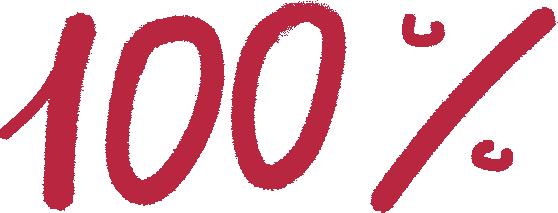
confusing wrath of students who seem to think we professors are ruining their lives by awarding only 60% of each class with A’s.”
Bogost also wrote that course evaluation surveys may incentivize faculty to give higher grades, especially if they are non-tenured.
“Those surveys are, in turn, notoriously unsound as a measure of learning, but they do exert pressure to make students happy. And you know what makes a student happy? Giving them an A,” Bogost wrote in the Kirkwood said that she had not personally received feedback on her course evaluations that led her to want to change her grading policies, but could see how it might pressure faculty to

A 2024 Student Life investigation examining biases and inaccuracies in WashU’s course evaluations
In 2023, Liberty Vittert, a professor of the practice of data science, identified a similar trend of student dissatisfaction with grades, writing in an op-ed that she has received accusations of bias and discrimination when she has given out bad grades.
“The administrators at these universities are so afraid of their own stu dent body that they will throw the professors to the wolves — that is, straight to the Diversity, Equity and Inclusion (DEI) dean — if there is so much as a whiff of an accusation,” she wrote in The Hill.
implemented during his time at WashU.
“Employers are going to do more of their own screening. This is going to take students out of the classroom at an earlier phase, arguably a very critical stage of their academic careers,” he said. “I found myself challenged at times with just getting people to really focus on the classroom.”
Sophomore Brandon Chang, a student at Olin who is involved in WashU Student Investment Fund, Olin Business Council, WashU Investment Banking Association, and WashU Consult Your Community, among other organizations, said he feels he needs extracurriculars to find a job.
“A lot of the business classes are helpful for your critical thinking development, but they don’t really teach you the skills necessary for a job environment,” Chang said. “Conceptually, [classes] teach you some pretty good things, but you don’t really get much practice applying them.”
risks disadvantaging stu-

Vittert told Student Life that she is unable to comment for this article because she is on maternity leave.
However, Eric Fournier, the director of educational development at WashU’s Center for Teaching and Learning, believes some of the critiques of grade inflation are misplaced.
“Some of the criticism about grading … is more broadly about just kids these days. ‘Have they got it easy?’ ‘They’re too soft.’ ‘There’s not enough rigor,’” Fournier said. “I don’t really see the validity of that criticism
cal engineering, said grade inflation may be due to a more competitive student body.
“Since 30 years ago, [WashU] has become a more elite school,” Brennan said. “I love teaching WashU students. It’s a huge privilege, … but I do think it means that you tend to get more of the students that are going to [do] everything they can to get that high score.”
Brennan added that, in general, students in her classes who received an A had earned it.
Looking ahead
occasionally participates in admissions for the graduate program at WashU. She said that while GPA is a factor that they consider, portfolio and other experiences are more important.

Student impact
Gardner said he is concerned that grades are distracting students from
“I worry about the role grades play in students’ lives, and I’m bothered by the fact that a lot of students are more concerned about the grade than they are con cerned about the skills and the content that they can get out of the course,” he said.
There are several alternatives to the current grading
Kirkwood expressed a
Chang said that despite his extracurriculars, he spends a lot of time on academics and feels he has to consistently work hard to Junior Justin Krelitz is majoring in biochemistry and minoring in English literature, and he says he doesn’t think A’s come eas-
“I’ve done well in all my English classes, but it’s always like, the first essay is really brutal, and then you have to adjust. … It’s not particularly indulgent or
Krelitz hopes for a more holistic approach to grading and described one of his professor’s approaches to
“Her mentality was I think the right one — it wasn’t ‘oh, they did this minor, tiny thing wrong, I’m going to dock points,’” Krelitz said. “It was [more] ‘do they have the right overall concept.’” Smith said she felt one of the most “toxic” things about grade inflation is how it causes students to set unreasonable expectations for themselves.
“It contributes to a toxic
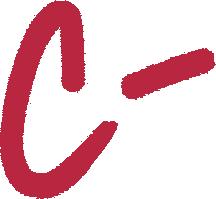
GANZ BEN OLLENDORFF STAFF WRITERS
With 7.4 seconds remaining in a game that would decide the University Athletic Association (UAA) championship, the No. 12 WashU men’s soccer team lined up to defend a free kick directly outside the box. If the No. 3 University of Chicago scored, they would tie the game and win the UAA championship. If the Bears held on, they would win their first title since 2021.
Chicago’s set piece was near perfect. The ball curled exactly as it was supposed to, exactly where it was supposed to. Until it struck the crossbar. WashU corralled the ball and, with seconds winding down, junior forward Ethan Wirtschafter cleared the ball into the stands, sealing WashU’s UAA title in the most emphatic of ways.
“It feels amazing,” junior defender Nik Avillo said. “It feels like we’ve had this coming. It’s deserved.”
The Bears defeated Chicago 1-0, winning their 10th UAA title in program history and first under the tenure of head coach Andrew Bordelon. WashU spent 75 minutes of the game down a man, but a first-half goal was all the Bears needed to pull off one of the most improbable victories in program history. As a result, WashU clinched an automatic qualifying bid to the NCAA Division III tournament, the first time they will compete in the tournament since 2021. Since the women’s soccer team is hosting, the Bears will

travel to face the University of Wisconsin–Whitewater in the first round of the tournament. With a championship on the line against Chicago Saturday, both teams came out firing, as it took first-year midfielder Sebastian Valdes just six minutes to record the Bears’ first shot on goal, which required a sprawling save from the Chicago keeper.
Just moments later, Chicago caught a break. A beautiful Maroons long ball over the top led to a desperate slide tackle from junior defender Quentin Gomez. Gomez received a red card for denying Chicago a clear goal-scoring opportunity and will miss the Bears’ tournament opener with a onegame suspension. Despite playing down a man, the Bears kept up their preferred playstyle and effort.
Bordelon brought in fresh legs with playmaking junior midfielder Colin Link coming into the game, shifting senior defender Nate Szpak and firstyear Miles Newman to hold down the back line. WashU was able to adapt with limited changes early into the game.
“They made it really easy on me that we didn’t have to change [much],” Bordelon said. “I think we dealt with the red card all the way into halftime really well.”
On both sides of the ball, the teams stayed energized and aggressive. In the 32nd minute, Link sent a ball to junior midfielder Jake Whitehurst, who slotted a left-footed shot into the bottom corner of the goal to give WashU the early advantage. The goal provided exhilaration and relief as the Bears gained a crucial 1-0 lead.
ROMAN PETERSON STAFF WRITER
The WashU football team dominated North Park University in their final home game of the season, 42-14.
After WashU won the coin flip and elected to defer, the Vikings immediately stunned the home crowd by returning the opening kickoff for a touchdown.
From there on out, the Bears dominated play. Junior quarterback Levi Moore connected with junior receiver Makael Carter for a touchdown later in the first quarter to even the score, beginning a run of 42 unanswered WashU points. Moore showed out in the final home game of the season, going 19-21 with 238 yards to go along with two passing and three rushing touchdowns. WashU’s defense also performed strongly. North Park finished
the game with a loss of 34 rushing yards, setting a program record for the fewest rushing yards allowed by the WashU defense.
With the win, WashU improved to 8-2 on the season and gave its 19 senior class members a fitting send-off on Senior Day. The victory served as a tribute to the seniors who helped shape the program’s culture over the past four years.
“We wanted to make sure that [the seniors] took everything in and enjoyed the day,” head coach Aaron Keen said. “I’m happy for them. They came out, played a good football game, and came out on top.”
The Bears will travel to face Augustana College on Saturday, Nov. 15, at 12 p.m. With a win against Augustana, which also boasts a 7-2 record, the Bears will likely qualify for the Culver’s Isthmus Bowl for the second time in program history.
“I was just so excited,” Whitehurst said. “I was thinking of all the celebrations and stuff I could do. It was ecstatic.”
The Maroons significantly ramped up their intensity in the second half, with 11 of their 14 shots occurring in the last 45 minutes. While junior goalie Cal L’Hommedieu only notched one official save in the second half, his impact and presence were felt much more than shown. With Chicago also having 11 corner kicks in the second half, the defense had to be on their A game, especially being a man down. This intensity of defensive play wasn’t easy, especially for WashU’s back line.
“Chicago has really good players,” Avillo said. “This was definitely one of the hardest halves, I’m sure for most guys
on the field, in our lives. Just in terms of how much we had to run and how tired we were.”
The end of the game could only be described as a fairytale, leaving all the fans on the edge of their seats. The Bears parked the bus in the final 10 minutes, just focusing on clearing the ball, yet they still conceded three corner kicks and five shots. A late foul set up the pivotal free kick, and as soon as the ball pinged off of the crossbar, the Bears’ bench erupted in pure elation.
For the Bears’ seniors, none of whom have ever played in the NCAA tournament, the win was a dream ending to their WashU careers.
“I was in complete shock,” Szpak said. “I’m just so thankful.”
The championship is a big milestone for WashU as it
marks a new era in the program’s history. Now, the Bears will turn their attention to the NCAA tournament, starting with a matchup against Whitewater, who finished with a 14-3-2 record in the competitive Wisconsin Intercollegiate Athletic Conference (WIAC). The Warhawks are led by senior forward Cooper Re, who was named the WIAC’s Offensive Player of the Year after leading the conference with 16 goals. WashU and Whitewater played five common opponents this season, with both teams playing to a 4-1 record in those five games. If the Bears win, they would face DePauw University or Chicago in the second round. After the Bears beat Chicago in a nailbiter to win the UAA last weekend, a rematch between the rivals would be one of the most anticipated games in the opening weekend of the tournament.
While the Bears are arguably the strongest team in their foursome, they will not have an easy road to the second weekend. During the regular season, the Bears excelled when tested, going 4-0 against top-15 opponents. In the tournament, where any one loss spells the end of a team’s season, WashU will have to once again step up against some of the nation’s best. The Bears are confident they can do just that. “We feel like we’re one of the best teams in the country,” Bordelon said after beating Chicago. “Obviously, we have to continue to show that. And we’re going to take it day by day.”
No. 5 men’s basketball wins home opener to begin 2025-26 season
ROMAN PETERSON JACOB RITHOLZ STAFF WRITERS
The No. 5 WashU men’s basketball team opened its season with a 90-78 victory over Carroll University. Coming into their
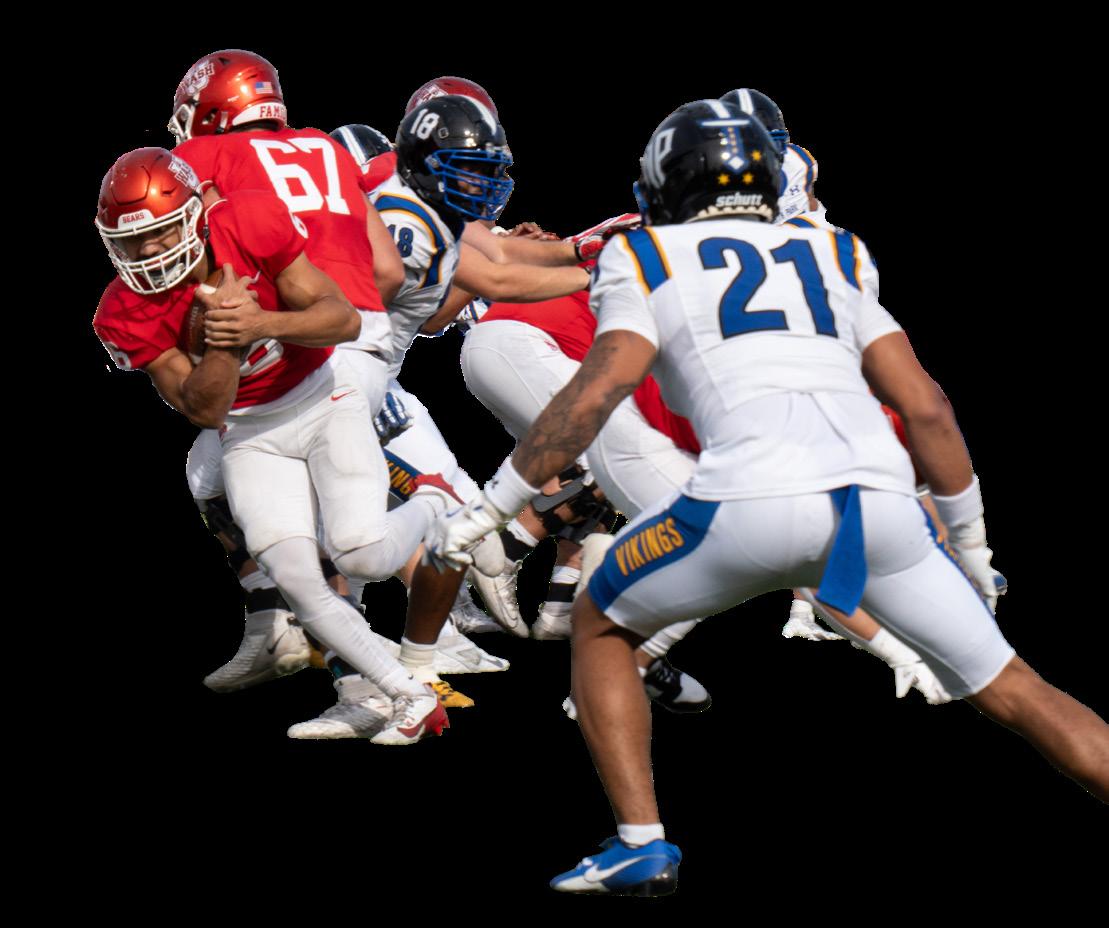
opener after a long postseason run ending in the Final Four in 2024-25, the No. 5-ranked Bears looked to assert their dominance early in the 202526 season.
WashU struggled to deal with Carroll’s full-court press early on. The absence of usual starter senior guard Yogi Oliff due to injury caused some lack of readiness for the Bears press, forcing head coach Pat Juckem to start first-year guard Josh Kim in his first career game.
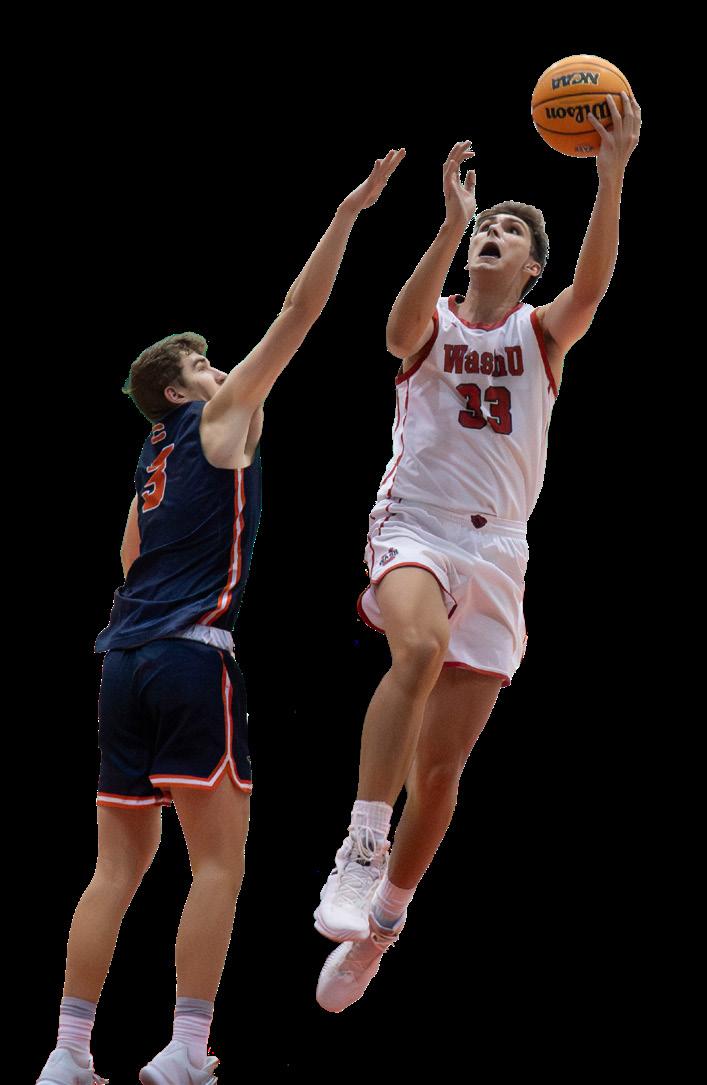
“To play against a full-court press right out of the gate and doing it without our senior point guard there, you could tell that we missed him,”
Juckem said. “But I thought we settled in nicely. … our guys were just steely and poised. I’m really proud of how they responded.” Carroll hung with WashU until around the nine-minute mark of the second half, when sophomore forward Connor May would score seven straight buckets to cushion the Bears’ lead. At the final buzzer, the Bears were on top, 90-78. May led the Bears in scoring with 18 points. Senior Calvin Kapral recorded a double-double, with 13 points and 12 rebounds.
“We grinded it out,” May said after the game. “It wasn’t pretty, but we got the win. We won because we played together and trusted one another.”
Next, WashU will host Eureka College on Nov. 14, as part of the 41st annual Lopata Classic.
CECILIA O’GRADY
HANNAH
JUNIOR
In the movie “High School Musical,” Troy Bolton, one of the film’s main characters, is a basketball star and the lead actor in the school’s musical. WashU has its own, real-life version of Bolton in Lucinda Laughlin: a standout sophomore on the No. 13 WashU cross-country team and an alto for WashU’s alltreble a cappella group, the Evergreens. While balancing her
commitments to the Evergreens, she is a major contributor to the cross-country team. At the University Athletic Association (UAA) championship on Nov. 1, Laughlin was named a First Team All-UAA runner with a personal best 6,000-meter time of 21:22. In her five meets this season, she has placed in the top five in four and in the top 10 for the other.
Laughlin credits her success this season to the team’s camaraderie, which has in turn helped her thrive in her sophomore season. To Laughlin, the cross-country team shares a
special bond that has led them to their accomplishments this season.
“We always race for each other,” Laughlin said. “We have lots of core principles and slogans, and we use those to propel us, thinking maybe not about the outcome during the race but more [about] doing it for each other and caring about everybody.”
Before WashU, Laughlin performed in the San Francisco Girls Chorus as well as her high school’s choir and a cappella group. Laughlin’s love for music also stems from summertime
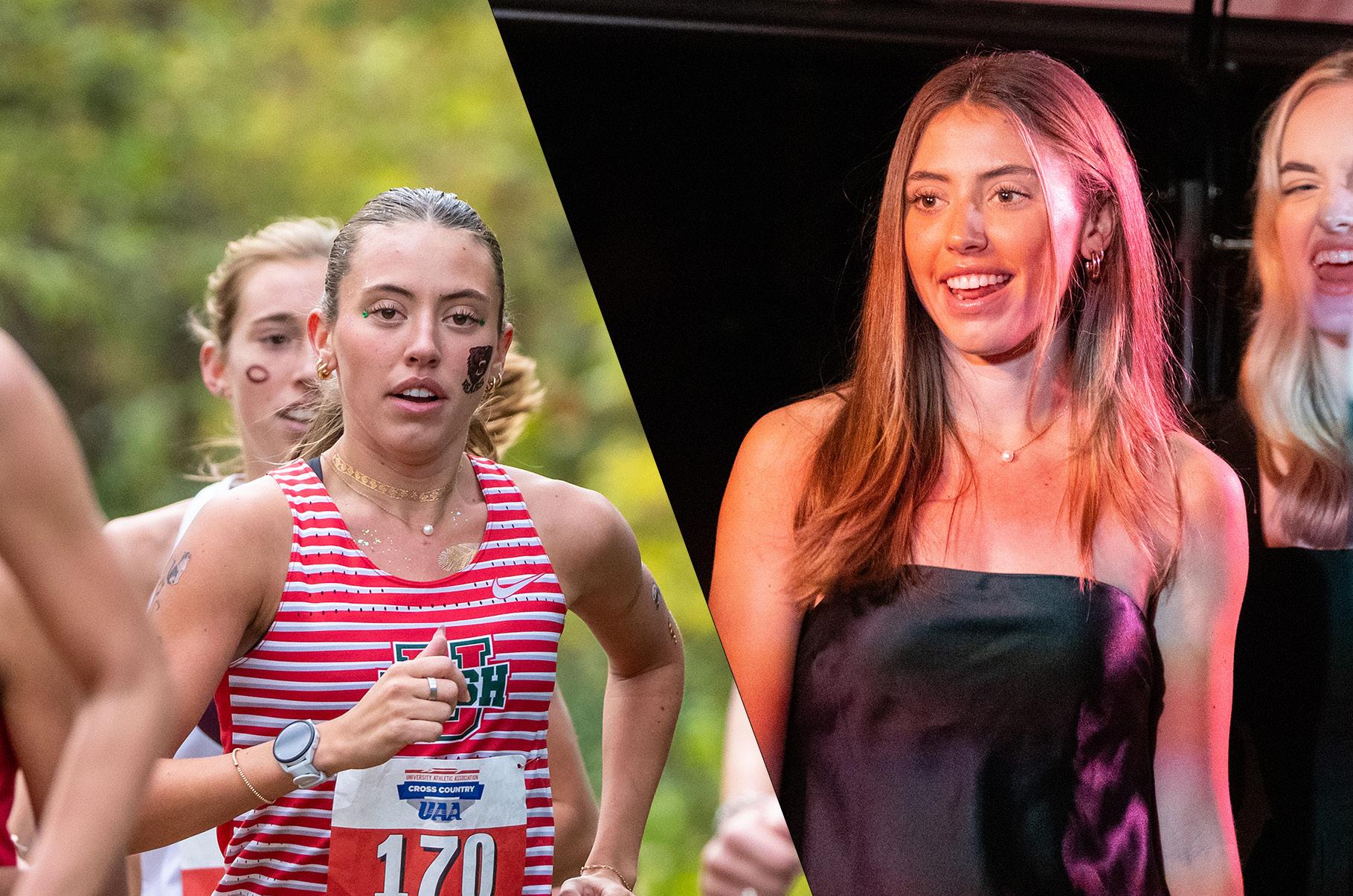
theater productions, watching her mom’s band perform, and singing Christmas carols with her family. Although she had a busy first year, entering her second year, Laughlin aspired to join an a cappella group to add music back into her life.
“The one thing I [was] missing [was] having music in my day-to-day routine,” Laughlin said. “What’s stopping me from doing that? I didn’t want my reason to be that I’m too busy. So, my main goal coming into sophomore year was to audition for an a cappella group, just audition, not even get in.”
This fall, Laughlin auditioned for three a cappella groups, but she quickly became most interested in the Evergreens. She had seen them perform at their shows and outside of Bear’s Den. Luckily, the members of the Evergreens thought she would be a perfect addition to the group.
“Right after her first audition on the very first day, me and some other people had a debrief after she left and we all thought she was perfect,” sophomore Vivian May, a fellow Evergreen, said. “Lucinda is so funny, sweet, and cute, and she just meshed right in with the vibe from day one.”
A typical weekday for Laughlin starts before sunrise.
She has practice at 6:30 a.m. and then has class right after.
She has lunch and squeezes in time for homework, because a cappella rehearsal takes up most of her evenings. After her afternoon classes, she attends team lift at around 6:00 p.m. and then goes directly to Evergreens rehearsal and straight to bed by 9:30 p.m.
Laughlin is supported heavily by her teammates, her coach, and the Evergreens.
The Evergreens accommodate her busy schedule and allow her to come late if she has a lift or let her leave early so she can get enough sleep for her early practices and meets.
“In the Evergreens, we are all about being a person first, a student second, and an Evergreen third,” May said. “I think being an athlete falls in with being a student. … We trust everyone wants to do well, and Lucinda is a great example of that.”
Laughlin puts as much effort as she can into both groups, but she makes sure to prioritize running. Head coach Jeff Stiles allows Laughlin some extra time for the Evergreens, such as when she missed supporting her teammates’ meet for the Evergreens’ Green Eggs & Jam concert on Nov. 7 and 8.
“Once I told [Stiles] I was
in the Evergreens, he has been obsessed with it,” Laughlin said. “He brings it up every day, and he says, ‘You’re gonna sing for everybody.’ It’s really helpful when people know the communities that you are involved in and want to make it work, because they want you to succeed.”
Laughlin’s ability to balance so many things comes down to her love for her communities.
“You can just tell how much Lucinda cares about everything she is involved in,” May said. “The other day, while we were tabling together for our concert, she was at the same time writing cards for some of the freshmen on the cross-country team.”
After her fall concert, Laughlin and the WashU women’s cross-country team can now focus on the Midwest Regionals on Nov. 15 in Waverly, Iowa, and then the NCAA Division III Championship on Nov. 22 in Spartanburg, South Carolina.
“I am excited to see what we can do at regionals and nationals,” Laughlin said. “I think that we’re more capable of things than we even know. I think that if we just work together, we can put out performances that we are proud of.”
For the third straight season, WashU women’s soccer will kick off its playoff run at home, with its first game scheduled for Saturday, Nov. 15, at 11 a.m. The Bears enter the tournament as Division III’s strongest team and the clear number-one seed. After losing in the 2023 national championship game, WashU has been nearly perfect since, winning the 2024 national title in dominant fashion and entering the 2025 postseason on a 43-game unbeaten streak with just four draws in that stretch.
Though the Bears are no strangers to the postseason, the NCAA tournament will once again prove a new challenge for WashU, with every game coming against elite opponents with the season on the line.
“Being in the NCAA tournament is always an honor,” head coach Jim Conlon wrote after their final regular season game. “It is hard to get there — we will focus on being good at the basics.”
After a grueling season in the University Athletic Association (UAA), D-III’s strongest conference, the Bears are well-equipped to face tough opposition.
Competing in a conference that is sending seven teams to the NCAA tournament, the Bears set themselves apart from the pack. With six wins and one draw in conference play, the Bears cruised to a third consecutive UAA title. Along the way, the Bears won crucial road matchups against some of the nation’s best, beating then-No. 3 Case Western Reserve University on Oct. 11 and then-No. 2 Emory University on Oct. 26. Though WashU tied the No. 7 University of Chicago in their final conference game Nov. 8, the Bears enter the tournament battle-tested and ready to take on some of the nation’s most formidable teams.
WashU typically overwhelms opponents with a high-powered offense, averaging 3.72 goals and 23.3 shots per game this season. After a breakout first-year season, sophomore forward Olivia Clemons has been a star for the Bears, being named the UAA’s Offensive Player of the Year for the second season in a row. Though she typically comes off the bench, Clemons adds a spark to the WashU offense and leads the team with 15 goals this season. Other players to watch are senior forward Grace Ehlert, who was a First
Team All-American last season and has scored 12 goals for WashU this season, and senior forward Ella Koleno, a key playmaker with a teamhigh 10 assists.
The Bears dominate most games by winning the midfield battle, and First Team All-UAA junior Sophie Viscovich and Second Team All-UAA sophomore Kate Martin lead a formidable midfield capable of controlling possession. Behind them, the WashU backline consistently steps up when needed to shut down opponents,
allowing just six goals in the entire 2025 season. In total, seven Bears — Clemons, Ehlert, Koleno, Viscovich, Martin, junior forward Madi Foley, and junior goalkeeper Kassidy Lanthier — earned All-UAA honors. WashU will start the tournament at home against Wilmington College, who is competing in the NCAA tournament for the first time since 2003 after winning the Ohio Athletic Conference (OAC) tournament. The Bears are heavy favorites in the match. Both WashU and Wilmington
played Centre College this year; the Bears easily beat Centre 5-1, while Wilmington lost 1-0. The Quakers are led by seniors Alex Wilson and Jordan Snyder, who were the two leading goal-scorers in the OAC this season. If the Bears beat Wilmington, they will face either Loras College or North Central College in the second round. Loras, the American Rivers Conference (ARC) champions, boasts Division III’s strongest defense, having conceded just two goals all season. North Central, which
won the College Conference of Illinois and Wisconsin (CCIW) for the third straight season, lost 1-0 to WashU earlier this season.
As the hosts of their bracket, the Bears will enter the opening weekend as favorites to advance to the second weekend. However, Loras or North Central both bring the momentum of a conference championship win and strong defenses that could be difficult for WashU to break down. To sweep the first two rounds, WashU will have to be in its best form.
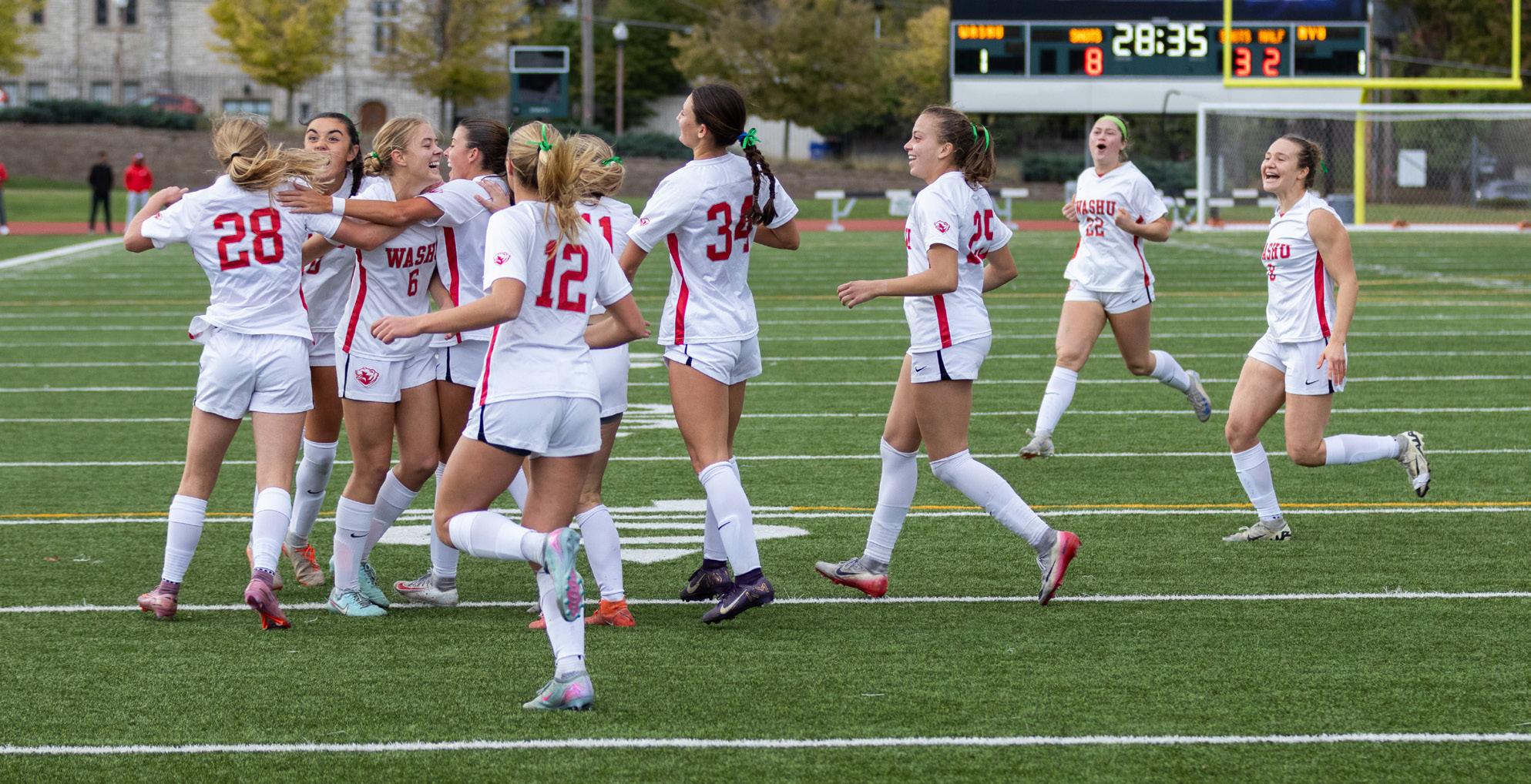


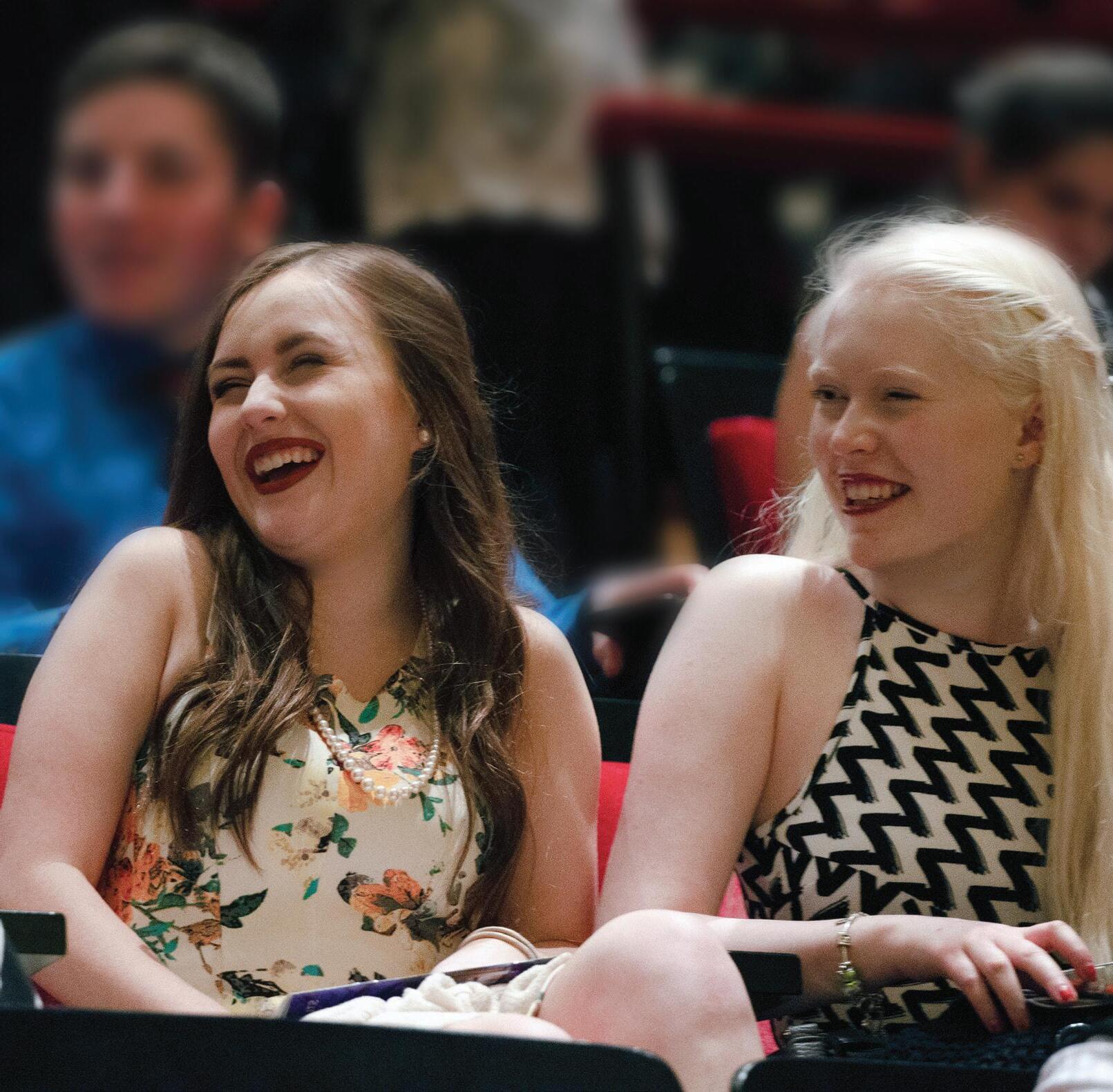

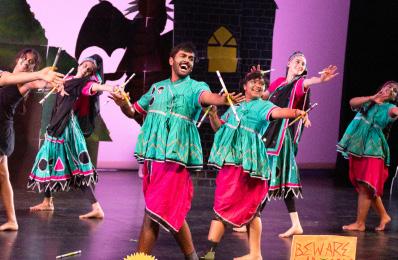
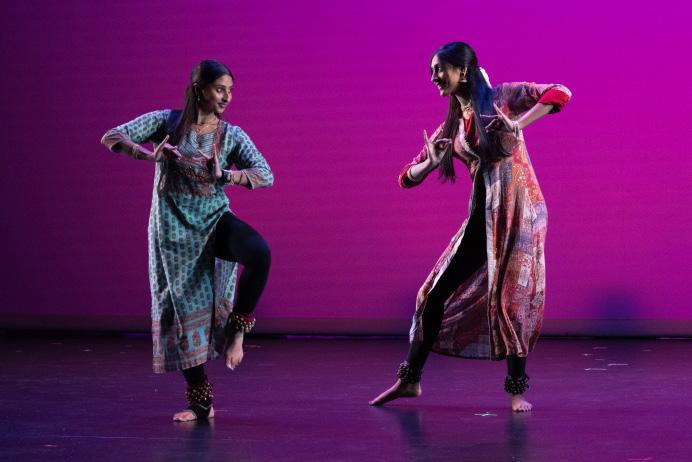
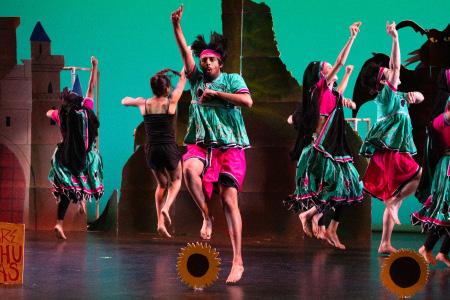
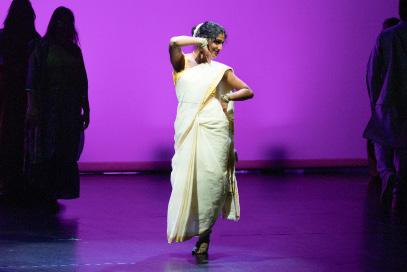
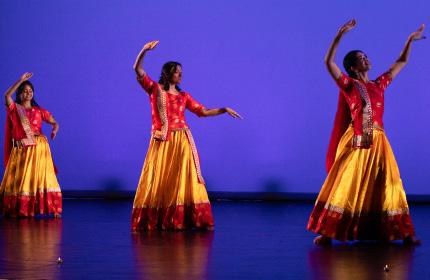

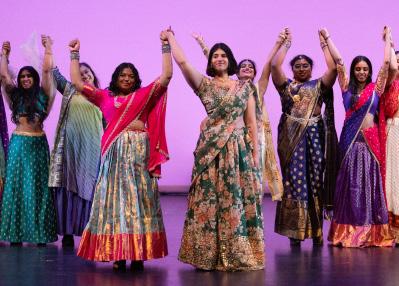
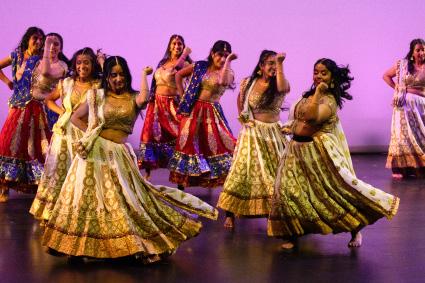
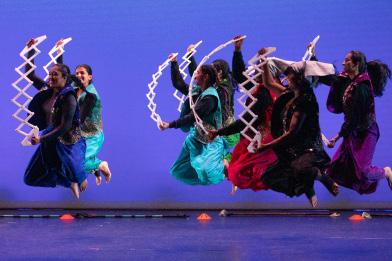


“Alone, we can do so little; together, we can do so much.” — Helen Keller
Community is a concept that is thrown around a lot today. School administrations, clubs, affinity groups — everyone seems determined to capture it. On Nov. 7, in Dr. G’s dining room, 10 other Wills and I found it over Hawaiian barbecue.
The idea began as most popular movements do: with a dream and an Instagram group chat. Back during Bear Beginnings, Vice Chancellor of Student Affairs Anna “Dr. G” Gonzalez, in her convocation speech, had revealed that Will was the most common name in the Class of 2029, and thus, “the search for 19” was born. This chat began as a joke and was the brainchild of first-years Wills Coyne and Kamp, who began scouring Instagram almost immediately after the speech.
At this point, the duo had no clear goal in mind, but the number of Wills added to the group chat kept growing. Soon, nearly three-quarters of the firstyear Wills were unified in one group chat. The
remaining 25%, however, proved extraordinarily difficult to track down. What followed was a grassroots outreach program: canvassing across campus, knocking from door to door, and desperately trying to make connections. I distinctly remember wandering across the floors of Eliot and Umrath, searching in vain for any trace of the lost Wills. For a moment, the movement seemed doomed to fail.
But where there’s a Will, there’s a way, and with 16 Wills, we couldn’t fail. That’s when we brought in Dr. G. Coyne and Kamp sent an email to Dr. G asking for all the emails of the first-year Wills. That way, they figured, they could send emails to the remaining Wills rather than tracking down leads and following hunches. Dr. G not only provided the necessary information, but invited all of us to dinner at her house. Obviously, we accepted — it was the perfect opportunity for our first in-person gathering. There was one final component to take care of: our dinner uniform. It was decided, with unanimous consent, that we would all wear jeans and a white t-shirt to dinner, but act
like it was a coincidence, demonstrating the mental unity of the Wills.
At first, meeting up under the clock tower felt like some kind of humiliation ritual — or a boy band rehearsal. Everyone who passed us stared or took photos, and I found myself beginning to shrink away, self-conscious of the attention I was drawing. As we shouted across the South 40 to every approaching Will, however, I was filled with confidence. If they stared at me, they stared at us.
Dinner was fantastic; Dr. G was a wonderful host. What struck me the most, however, was the camaraderie I felt with the rest of the Wills. Athletes, engineers, artists, and selfaggrandizing newspaper writers all together, under one roof, eating Hawaiian barbecue. Then came the highlight of the dinner: the roll call.
Will Coyne stood up, cleared his throat, and pulled out a crumpled piece of paper from his jacket pocket.
“Will,” he read.
“Present,” we all responded. He nodded, crossed off the name, and continued.
“Will,” he read.
“Present,” we responded again. He nodded again,
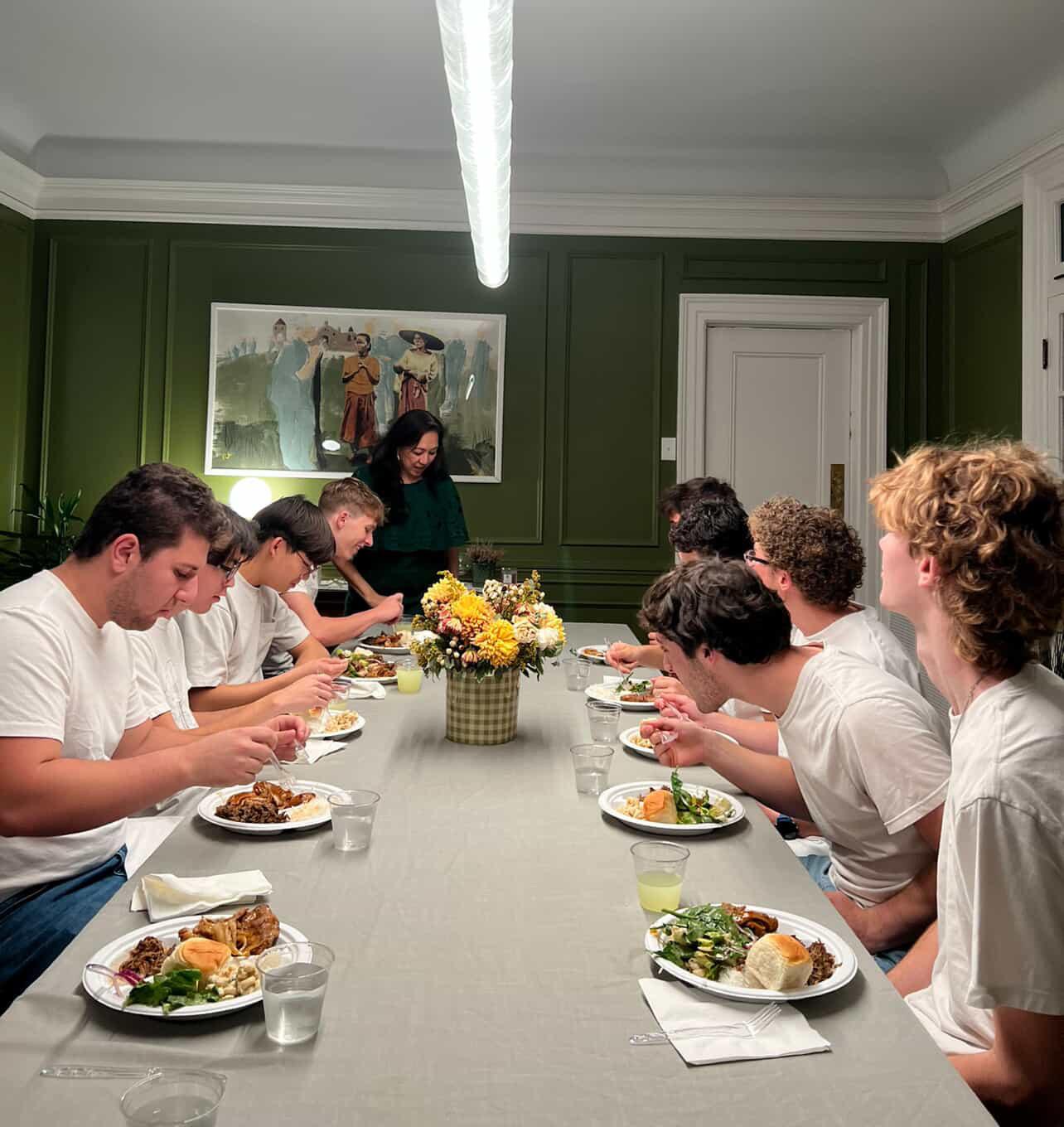
and scribbled on his paper again. We continued for every Will at the table and ended with applause.
As cliché as it sounds, I had an epiphany during the roll call. No matter our
differences on the surface, we were all going through life at WashU together, bearing the weight of one fantastic name. We were all connected now, whether we liked it or not. I, for
one, couldn’t be
and I hope the
the Wills in the Class of 2029 feel the same way.
Dreams are made of 6-foot bird wings, styrofoam, and hot glue sourced from a Czech Home Depot, at least according to senior Marielle Morrow. Her award-winning short film, “A Bird in the Field,” is set to be shown at the St. Louis International Film Festival (SLIFF) Saturday, Nov. 15, at noon. The film centers on an unnamed ornithologist whose research funding gets cut. It highlights the complexities of womanhood, passion, and sacrifice as she cares for a pair of eggs amidst marital and professional instability.
Morrow produced “A Bird in the Field” last spring alongside senior Cole Bernstein while studying abroad at The Film and Television School of the Academy of Performing Arts (FAMU) in Prague. Since its completion, the film has been screened at the St. Louis Filmmakers Showcase and WashU Film Festival, where it won Best Overall Film. Morrow and Bernstein cannot wait for its screening
at SLIFF later this week.
“I’m really excited. I think it’s very cool that it got accepted to be in this big film festival,” Bernstein said.
The film was created for an assignment at FAMU, one of the leading international film schools. The film was directed by Morrow, assistant-directed and edited by Bernstein, and co-written by both. Unlike their other projects, though, Morrow and Bernstein were faced with an additional challenge: shooting on film. Per one of FAMU’s requirements, all projects must be shot on 16-millimeter film. Unlike shooting on digital, film requires an extra level of planning, as there is only so much footage available. For this project, they had 400 feet of film, roughly equivalent to 30 minutes. Morrow and Bernstein’s final project needed to be 10 minutes. Because of this, the team had to be thoughtful with each shot, accounting for bloopers. They even had an extra member whose job was to keep track of the film remaining.
“When you call out ‘action,’ the vibe is much
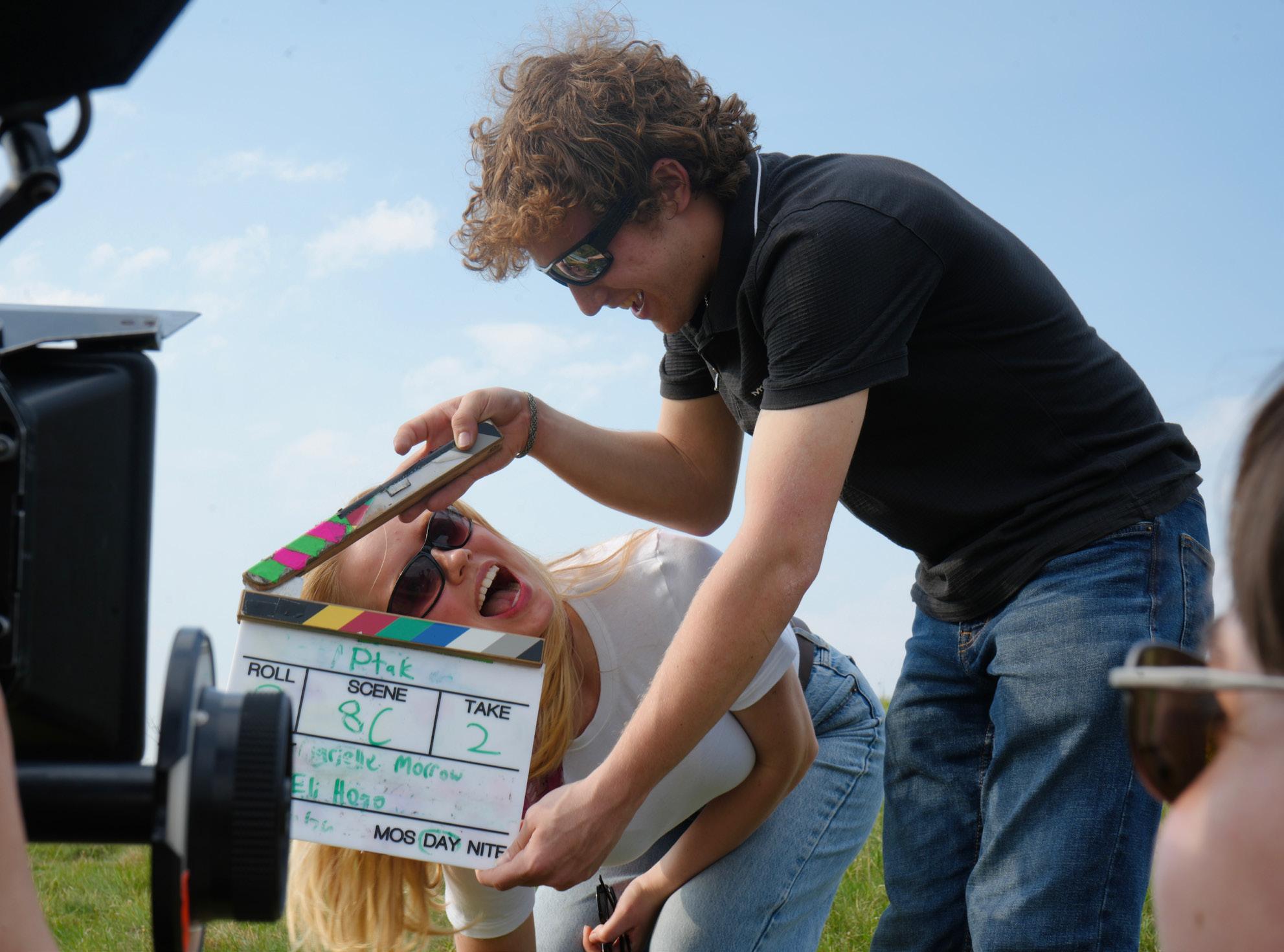
more serious,” Bernstein explained. “You only have a couple of chances to get it right, or you’re screwed.”
The vision, like many of

Morrow’s films, came to her in a dream.
“A lot of my works, like this one that’s showing in SLIFF, come from visions or dreams that I have,” Morrow explained. “I usually have an idea for a shot that I want to do first, and then I pull meaning from that.”
From there began a long process of writing, storyboarding, and filming, alongside Bernstein. In the drafting process, Morrow listened to the same playlist repeatedly, with songs such as “Change” by Big Thief and “Carlisle” by Lola Bllue, which helped her shape the film’s tone.
The final step of Morrow’s vision necessitated the construction of a 6-foot pair of wings for one of the shots. They ventured to what Morrow classified as the “Prague version of Home Depot” to buy supplies and stayed up late cutting and gluing the giant pieces of styrofoam and wire.
“It was sad when I had to leave, because I had to just throw them away,” Morrow reminisced. “And they were so beautiful.”
Morrow has always been enchanted by acting. In kindergarten, she starred as the Red Hen in a class play, a role she still considers one of her best. She pursued theater throughout high school, with the goal of becoming a screen actor. When she arrived at WashU, she had a foolproof plan to make this a reality.
“If I’m a film major and I make friends with all the other film majors, then I can just be in all the movies, which is kind of exactly what happened,” Morrow said.
But it wasn’t long until she fell in love with the other side of the camera as well and started directing.
“I really think that those two things go hand in hand, acting and directing,” Morrow explained. “Knowing or having the perspective of an actor makes you a better director, and vice versa. And I think that a lot of new directors come in without that perspective, and it’s hard to know how to work with actors.” Bernstein got his start making stop-motion
YouTube videos as a kid.
Until taking Intro to Film his sophomore year, though, he had only really considered himself a creative writer. He loves the collaborative and flexible nature of filmmaking.
“Words are kind of limited at a certain point, or maybe I’m just not good enough with them,” Bernstein joked.
“So I think the fact that film is very visual allows you to communicate messages through images and not words, which feels more freeing.”
The festival is a must-see event, featuring local and international films, with tickets starting at just $5. Morrow believes that SLIFF offers the ideal place to experience the featured movies.
“It makes a difference when you see it on a big screen with surround sound and with a theater full of people laughing, crying, hooting, hollering,” Morrow said. “If you haven’t been to a movie theater with a soldout crowd, you haven’t seen a movie! So be there in person, get your butt in a seat, and go!”
A friend recently asked us what we’re going to miss the most upon graduation, and we were in complete agreement: our classes. Our friend was surprised; people often anticipate most missing their college friends, clubs, and extracurriculars, being surrounded by people their age, or the relative freedom compared to the postgraduate world.
We are both seniors: Amelia studies English Literature and is graduating this fall, and Sylvie studies Women, Gender, and Sexuality Studies and Political Science and is graduating this spring. We will, of course, miss the social sphere of college, too. Yet, as we approach our graduations, we have found ourselves clinging to our readings and class discussions. We will stay in touch with our friends and club communities and embrace the freedom of our 20s, but nothing compares to the experience of liberal arts undergraduate classes.
While many people view their social and academic lives as distinct, we don’t have to. Our disciplines are notably social, as the hallmark of a humanities education is conversation. In discussions, we learn from our professors and our peers who all bring different perspectives and knowledge to the table. The College
of Arts & Sciences classes, especially in the humanities, encourage us to bring what we’ve learned from other classes and lived experiences to the subject. Learning from this material in this environment pushes us to reconsider our beliefs and preconceived notions and to think critically about the world.
We are worried that after we graduate, we will struggle to find spaces that similarly encourage open dialogue and exploration of new disciplines without implications for lifelong careers. We both plan to attend law school, which we are sure will teach us new things and expose us to new perspectives. Still, nothing is quite like an undergraduate education in the liberal arts. Our lives are dedicated to learning. We are encouraged to follow our intellectual curiosity without the pressure to turn all of those interests into lucrative careers. In graduate school, you instead focus on one discipline and work toward an occupation, especially in preprofessional programs.
As we express our gratitude for these liberal arts classes, we must acknowledge that the one-track mind thinking of graduate studies is becoming more common in undergraduate programs — a shift that greatly worries us. Humanities and social science disciplines are increasingly underfunded, underresourced, and deprioritized at universities across the country.
This phenomenon is
compounded by the Trump administration’s attack on the humanities. Under the proposed Compact for Academic Excellence in Higher Education, among other policies threatening academic freedom and diversity, equity, and inclusion, universities with substantial endowments would be required to charge tuition only to students who are not pursuing degrees in the “hard sciences.”
WashU has not been immune to this shift in undergraduate education, and we urge students to take our gratitude for our humanities and social science classes as a plea to take and support these classes and faculty. When you are selecting courses for the spring semester, we urge you to seek out classes like those we have described. Taking these courses will not only benefit you, but it will also signal to WashU that we value these programs and that they should, too.
One of the best things about college is that you can take classes outside of your major or minor, which will give you a more nuanced perspective when you return to your major program and your future. Many of the best classes we’ve taken were cross-listed (often with our majors), as they are interdisciplinary and cover an intersectional breadth of topics. We especially encourage people to take classes in cultural studies departments, particularly those centering

experiences and communities different from their own.
Instead of scrolling RateMyProfessor for the easiest grader, try looking into a professor’s primary research subject and choosing a class they teach about this topic. Classes where the professor teaches about the topic they dedicate their scholarship to are often the most interesting and engaging and facilitate meaningful discussions. Additionally, you can ensure that classes are discussion-based by checking the class size (aim for under 20).
As WashU students,
we are inundated with homework and outside engagements, which makes it tempting to take our classes passively and just for a high grade. However, as seniors looking back on the times we, too, skimmed our readings and prayed for winter or summer break, we wish we could go back and do it again.
We urge each student to value their readings, classes, and discussions. Thoroughly engage with your readings by highlighting and annotating — and definitely don’t just read a ChatGPT summary.
Actively participate in your class discussions: learn the names of your classmates, build off of their ideas, and be open to new perspectives and occasionally being proven wrong. Your professors are your greatest resource, so go to office hours and ask them questions about class and their research, and for advice and mentorship. And don’t take the easy route: do the honors thesis or capstone and take the classes you’ve heard are difficult but well worth it — that’s what college should be.
I’m sure that many of us social media users share the experience of scrolling for an extended period of time and remembering… nothing.
One of the most troubling aspects of doomscrolling is how time seems to just disappear. Not only can hours feel like mere minutes on TikTok, but after scrolling, it is incredibly difficult to recall the content of the posts you just consumed. This content is diverse; from dancing clips to political commentary to niche humor, we are exposed
to ideas from around the world while scrolling. But the true paradox of the internet is that in the process of connecting us, it has also left us isolated.
Our generation reports feeling more lonely than older ones. We are less likely to have close friendships and feel like we belong in communities. These shortcomings can be attributed to the decreasing presence of stories and growing prevalence of mindless scrolling as the way we entertain ourselves. When we don’t consume fiction for fun, we forget how to create meaningful narratives in our lives, and narratives teach us how to build connections and
community. Today, we are missing stories.
The average college student spends upwards of four hours per day on social media. I would guess that at most, 30 minutes of this time is spent interacting with actual friends and family, while the remaining hours are dedicated to scrolling for pure entertainment — entertainment that derives from content with no plot, characters, or greater meaning.
This paradigm is problematic because engaging with fiction, whether through reading a novel or even watching a movie or TV show, is connective. Studies have shown that reading fiction enhances
When we don’t consume fiction for fun, we forget how to create meaningful narratives in our lives, and narratives teach us how to build connections and community. Today, we are missing stories.
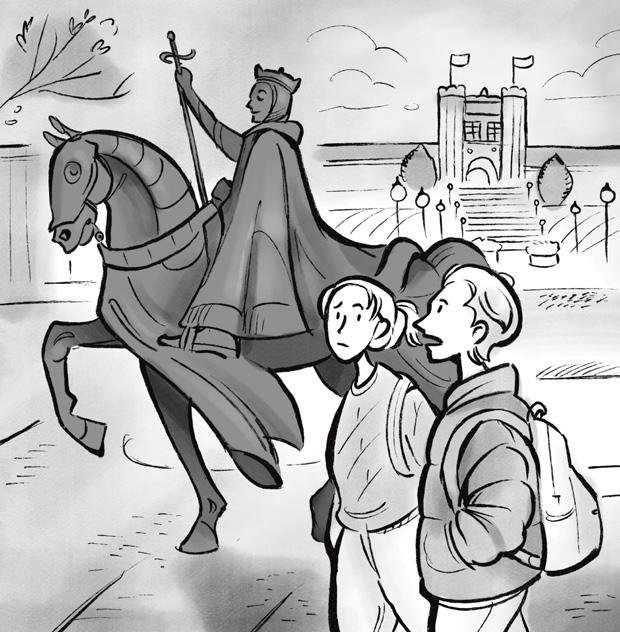
ANAELDA RAMOS
| MANAGING ILLUSTRATION EDITOR
empathy, and watching movies also exposes us to new perspectives. Writing a book or producing a fictional story requires composition; that is to say, authors and directors intentionally craft narratives to have deeper meanings and lessons.
Even “trashy” fictional content, such as surfacelevel romance books or low-budget sitcoms, has intentionality. If anything, these fictions inspire great meaning in our lives because they are about things that we can all relate to, like love, family, and relationships. The underlying theme of most stories — connection — is what we miss when entertaining ourselves through social media for hours per day. No wonder young people are missing community these days: our scrolling has eroded the inspiration that arises from fiction.
To clarify, the problem with our scrolling epidemic is not necessarily its lack
First Place:
I wonder where he puts the parking sticker.
John Chin, WashU Alum
Second Place:
Listen, I like Chancellor Martin as much as the next guy, but don’t you think crowning himself “Lord Martin the Venerable, Purveyor of Eternal Wisdom” was a little over-the-top?
Josh Poeschel, Humble Subject of Lord Martin the Venerable
Third Place:
They know it’s “In St. Louis for St. Louis” not “Is St. Louis for St. Louis…” Right? Sean Henry, Current WashU Student
of intellectual merit; typical criticisms of social media are often based on general denouncements of “trashy” content, even though people have always engaged with the “trashy.”
For instance, in early modern Europe, “chapbooks” were short-form, fictional novellas that were popular but held little literary value. Even many of our parents grew up watching unserious content, yet they were generally less lonely than Generation Z. At the very least, previous forms of “trashy” content were fictional. They may have been an escape from reality, but they transported the viewer into another reality through storytelling. In contrast, doomscrolling diminishes the presence of narrative in entertainment; it’s media that we struggle to remember, much less extract meaning and life inspiration from.
When you consume a piece of fiction, you may begin to understand
another’s perspective. You learn to incline toward empathy and away from cynicism. It’s as easy as watching your typical rom-com TV show, where alongside the temporary break from critical thinking, you actually observe how characters maintain long-term, meaningful relationships and grow to see the value in fighting for those we love. Perhaps the first step for reconnecting Generation Z is simply reengaging with stories once again. I don’t want to shame anyone for doing what brings them joy. I’m asking us to consider a return to storytelling as our default mode of entertainment. Next time you get back to your dorm from class, instead of scrolling, try reading a trashy romance or start a new show, and see if you remember more than what your scrolling showed you yesterday. Enjoying a story may inspire a story in your own life.
Caption this! Enter this week’s contest

KAN | ILLUSTRATION EDITOR
Scan the QR code to enter your submission by 11:59 p.m. on Monday.

Whenever I talk about my interest in reality television, someone (usually a guy) without fail will chime in to tell me how stupid and shallow they think it is. People often dismiss the consumption of reality TV as a “guilty pleasure” and regard it as lowbrow, but I feel no embarrassment about my love for it. Beneath the chaos and confessionals, there is something that is worth taking seriously.
Unlike scripted media, these shows offer an unfiltered glimpse into the social circles of men and women who live very different lives than ours.
Reality TV shows tackle a wide array of topics, both trivial and serious, like relationships, running a business, addiction, marriage, and mental health. What’s more interesting, though, is that
we get to see how everyone in the show reacts to these issues as they come up. We see how Lisa from “The Real Housewives of Salt Lake City” comforts Meredith through her marital issues and how Kyle from “The Real Housewives of Beverly Hills” approaches Adrienne about the rumors that she’s selling stories to the press. We see how Kim makes amends with her family after struggling with addiction for years and how Taylor learns to live after the passing of her husband.
While it may be hard to see past all the drama-filled clips posted online or the heated moments you see while walking past your sister’s room, the cast of these shows demonstrates true vulnerability.
Writing off interactions between castmates as “trash” is harmful and represents
something deeper about our society. Reality TV is one of the few spaces in the entertainment industry where women are present in large numbers, not only as cast members, but as producers (with female producers making up 41.5% for unscripted television) and audiences. The dismissal of these shows reflects a broader condescension of women’s social spaces. Whether it’s boy bands, romance novels, or beauty influencers, the interests of women are often deemed shallow and not worth analyzing, while traditionally “male” hobbies and interests (sports, video games, movies by male directors, etc.) are given respect.
Two big criticisms of reality television are that these shows are “scripted and fake” and that the cast is being exploited by producers. Yes, producers do meddle
in the affairs of cast members to create drama that favors a television screen, but to say that the entirety of these shows is scripted simply isn’t true. The castmates of these shows aren’t actors; they are businesswomen, mothers, friends, and rivals, all consenting to sharing their lives with us. While the drama we see on the show is amplified by producers, it isn’t created from nothing.
As for exploitation, this is an industry issue that is not exclusive to this genre. Instead of dismissing the entire medium, we should push for accountability among producers and protection for participants, while also acknowledging the cultural value of these shows.
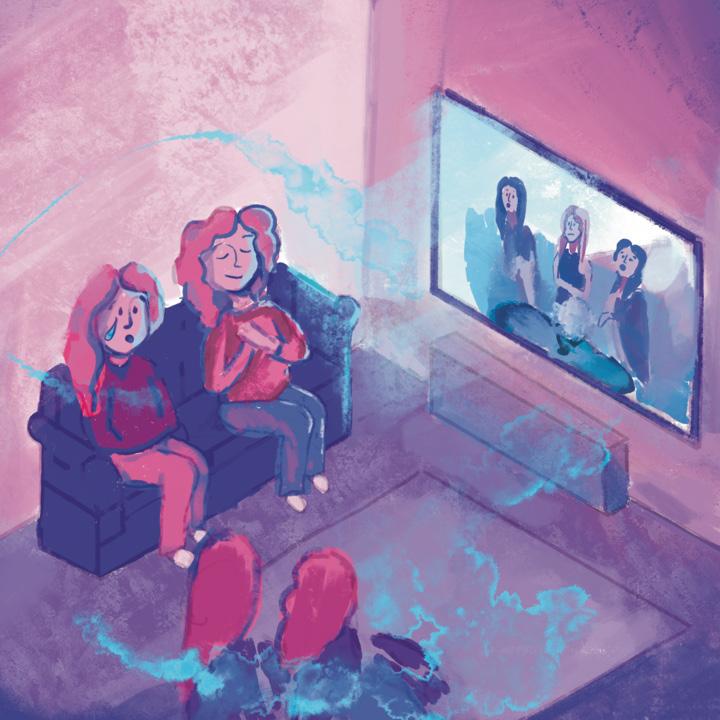
Reality TV shows the unfiltered, messy, mistakeridden lives of human beings (which is perhaps why critics may feel uncomfortable with it). This showcase of love, ambition, and struggle enriches the lives of many when they come home from work or school. It allows them to relate to people who are seemingly nothing like them. So before you make
Three former members of “Love Island” have killed themselves since 2019: two former contestants, Sophie Gradon and Mike Thalassitis, and the former host, Caroline Flack. Contestants on reality TV shows like “Love Island” are routinely subjected to predatory contracts, producer abuse, cyberbullying, and prolonged isolation from society. Reality TV only serves to entertain the masses who relish in watching already emotionally unstable contestants — those who have previously been exposed to physical and sexual trauma, social deprivation, pre-existing mental health conditions, and suicidal thoughts — explode on national television.
For decades, feminists have criticized pornography (and rightfully so) for its wildly unrealistic and damaging portrayals of sex. To remain consistent in our
opposition to pornography, we must hold reality TV to the same standard. I criticize reality TV and porn on the same grounds. Look at their uncanny similarities. Selective editing in both creates a distorted reality that imbues viewers with false impressions. Porn coerces financially unstable women into a vicious cycle of abuse and degradation, while reality TV lures tens of thousands of applicants who crave the fame it offers into a puppet show where they are emotionally marionetted. The result of both is a potently addictive product. Porn exploits viewers’ lust, and reality TV exploits viewers’ pride and boredom.
Most abhorrent is the abuse that pervades reality TV and porn. The abuse in the porn industry is already well documented, but viewers are less likely to know the extent of abuse in reality TV. On the show
“Love is Blind,” producers forced contestant Renee Poche to spend extended periods of time alone

with her abusive, drugaddicted fiancé. Prominent YouTuber MrBeast is facing a class action lawsuit for starving contestants, forcing them to play physically and emotionally taxing games, and for sexual harassment. Duke University School of Law published a report on children in reality TV and determined that “television channels take advantage of children and their parents, whose desire for fame
blinds them to the implications of high participation costs in reality TV shows, especially the psychological impacts.”
Reality TV indiscriminately and routinely proves to be harmful to viewers, contestants, and, worst of all, children. If you simultaneously criticize porn for all its flaws and habitually engorge the mental rot that is reality TV, you are a hypocrite.
“But they signed up for
it,” you protest. A signature does not absolve producers of their ethical duties, especially when contracts are signed under information asymmetry. Producers often deliberately cast emotionally vulnerable people, and the “fame” promised to contestants often turns into degradation and harassment. Ignorant consent is not consent; it is just coercion with paperwork.
“Reality” TV has to be the greatest misnomer of our age, because it could not be further from reality. Producers sell the shows as a true representation of the contestants’ characters, despite maliciously editing scenes to control narratives, grooming contestants’ relationships to create drama, and completely isolating them from the outside world to erode their emotional health. The result is an addictive, emotional concoction that exploits both viewers and contestants to turn a profit.
We cannot sit back, throw up our hands, and say, “We just need greater accountability!” Even if
that is true, proponents of reality TV have not provided actionable steps to reduce abuse. Their calls for “accountability” are just rhetorical handwaving used to distract us from the fact that they have no real answers. Ultimately, no amount of accountability can fix a product whose profitability relies on hooking viewers, exploiting contestants, and creating a grand fiction. When the product cannot profit without those, then it is fundamentally, not structurally, flawed. Bad trees bear bad fruit, and reality TV bears bad fruit, so it must be cast into the fire. Reality TV and porn are two sides of the same coin. Both industries exploit human vulnerability for profit. Both sell fantasy as reality. Both discard their emotionally destroyed actors like trash while viewers continue to consume and move to the next season.
Three people are dead. How many more before you consider changing the channel?




